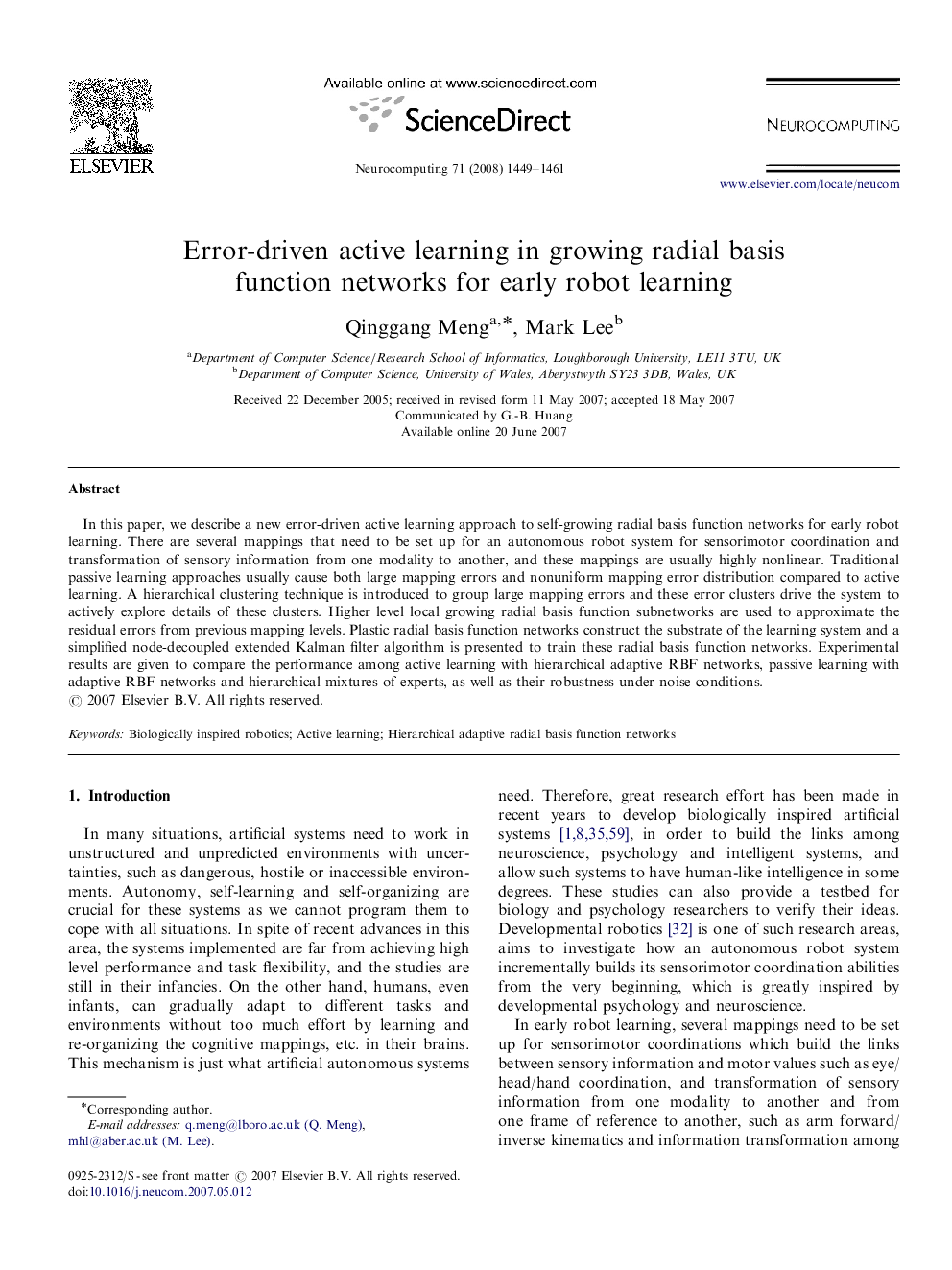| Article ID | Journal | Published Year | Pages | File Type |
|---|---|---|---|---|
| 409149 | Neurocomputing | 2008 | 13 Pages |
In this paper, we describe a new error-driven active learning approach to self-growing radial basis function networks for early robot learning. There are several mappings that need to be set up for an autonomous robot system for sensorimotor coordination and transformation of sensory information from one modality to another, and these mappings are usually highly nonlinear. Traditional passive learning approaches usually cause both large mapping errors and nonuniform mapping error distribution compared to active learning. A hierarchical clustering technique is introduced to group large mapping errors and these error clusters drive the system to actively explore details of these clusters. Higher level local growing radial basis function subnetworks are used to approximate the residual errors from previous mapping levels. Plastic radial basis function networks construct the substrate of the learning system and a simplified node-decoupled extended Kalman filter algorithm is presented to train these radial basis function networks. Experimental results are given to compare the performance among active learning with hierarchical adaptive RBF networks, passive learning with adaptive RBF networks and hierarchical mixtures of experts, as well as their robustness under noise conditions.
